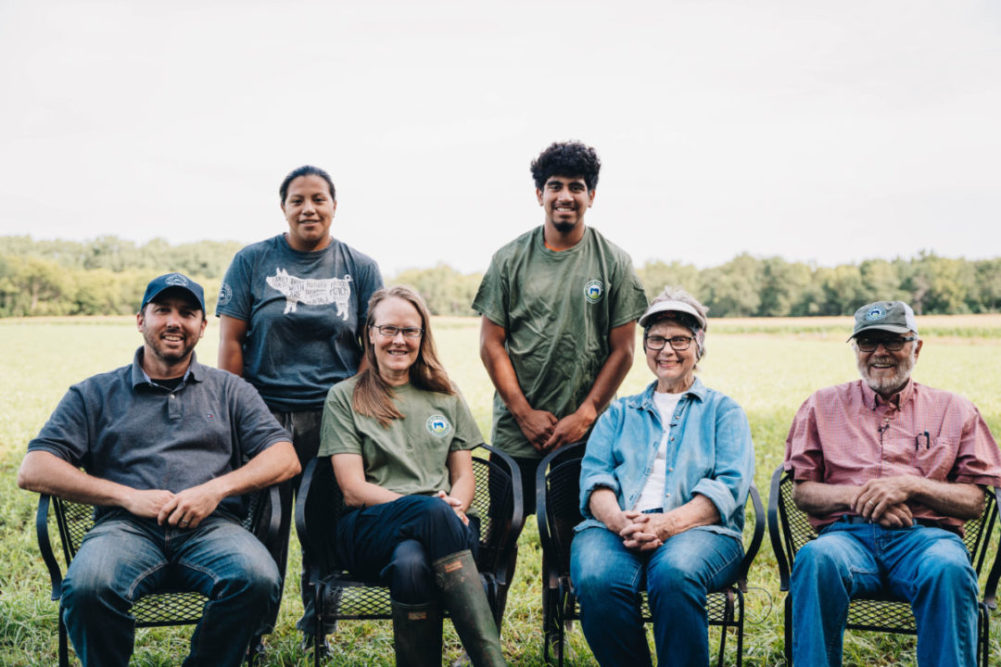WESTMINSTER, Colo. — Niman Ranch, a premium meats brand subsidiary of Perdue Farms, recently announced that the Jovaag family in Austin, Minn., would be the 2022 Sustainable Farmer of the Year.
The company chose the Jovaags for the honor due to their land stewardship and ongoing commitment to regenerative agriculture.
Jon and Ruth Jovaag have worked with the Niman Ranch network since 2011. They are following in the footsteps of Jon’s parents, Arvid and Lois, who started raising hogs for Niman in the early 2000s.
On the farm, the Jovaags raise cattle, sheep and chickens along with row crops that help with the productivity of the soil.
Over the last decade, Jon and Ruth converted their cropland to fully certified organic. The farm uses rotationally grazed livestock and new composting methods to increase diversity and soil fertility. Additionally, the Jovaags plant soybeans as they roller-crimp their rye cover crop to reduce erosion, weeds and irrigation needs.
“I applaud the Jovaag family for this well-deserved award,” said Chris Oliviero, Niman Ranch general manager. “The Jovaags exemplify regenerative agriculture in action — every season trying out a new practice to improve their soil and never settling for the status quo. The Jovaag’s leadership doesn’t stop at their farmgate; they are committed to sharing successes and learnings with other producers to drive a farmer-led movement for a sustainable future.”
Regularly the Jovaags host field days at their farm and work with local soil and water conservation districts and other research institutions to test new practices and measure the impacts of soil health.
“The Jovaags have a history of conservation and good stewardship of their land. Their leadership and mentoring of other farmers has been instrumental in improving soil health practices in Minnesota,” said Mark Gutierrez, executive director of the Minnesota Soil Health Coalition, a producer-driven education, outreach and information exchange network.
Following Niman standards, the Jovaags raise hogs with no antibiotics, no crates and heavily bedded barns to offer shelter from the cold and the heat. Pigs and sheep on the land also graze wooded sections of the farm to keep invasive weed species away. Manure from the animals is used as fertilizer for the crops.
The Jovaags also experiment with different crops; if they do not work, they are used in the feed for the pigs, making a system that wastes nothing.
“It’s a real mindset shift,” shared Jon about embracing regenerative agriculture. His advice to fellow farmers: “Just try a little bit at a time and have an open mind.”

